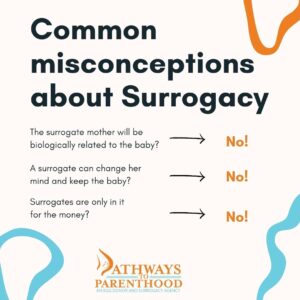Surrogacy and Health Insurance Explained

For surrogates and intended parents, insurance options for their journey are oftentimes much more complicated than they anticipated. If you are just getting started on your surrogacy journey, whether as a surrogate or Intended Parent, here are the answers to commonly asked questions about medical coverage for a surrogate mother pregnancy.
Do I need health insurance to become a surrogate?
It is preferable if you have your own health insurance if applying to become a surrogate, but it is not necessary. For a surrogacy pregnancy, some type of insurance policy that covers a surrogacy pregnancy is necessary to ensure coverage in the event there is any type of medical emergency. It will be determined during the surrogate’s agency screening process f the surrogate’s health insurance will cover her pregnancy as a surrogate. If not, a specialty insurance plan or Affordable Care Act (ACA) plan will be put in place for coverage. Intended Parents will cover the cost of the insurance if needed.
Does my insurance cover surrogacy?
There are no laws that require an insurance company to cover a surrogate pregnancy. Insurance policy plans vary so it important that, whether you’re an intended parent or prospective surrogate, the determination regarding coverage is made before moving forward in the surrogacy process.
Is there any insurance that prohibits me from becoming a surrogate?
If a woman is receiving Medicaid benefits, she may not be a good candidate for surrogacy. When an individual is on any form of government assistance like Medicaid they must report all income whether taxed or not. All money is considered earned income under the Medicaid qualifying laws. Medicaid places a strict limit on how much one may earn and still retain eligibility for benefits. Payments under surrogacy contracts may put your surrogate over this limit.
What about insurance for the baby?
It is also important to know that only the surrogate and her pregnancy are covered under any insurance put in place for the her pregnancy. Or if she has coverage in her own policy, it is for maternity benefits only, It will not cover the baby after birth. You’ll want to make sure that you notify your personal health insurance company to inform them of the coming birth. They will let you know what you need to do to have the baby covered at birth.
Maternity insurance for surrogates can be a little confusing, and costly, which makes working with an experienced agency like Pathway To Parenthood a huge benefit! Whether you are future parents looking for the ideal surrogate or want to give the gift of new life to a couple in need by becoming a surrogate, you are sure to have many questions! Pathways To Parenthood Egg Donor & Surrogacy Agency is the expert in helping surrogates and parents find each other. Start your journey with us today!
Intended Parents Dominik and Dennis Share Their Surrogacy Story

While each person’s path to parenthood may look a little different, there are many common threads – especially for those who go through fertility treatment to bring their babies into the world. Whether you’re a member of the LGBTQ+ community or not, choosing to pursue IVF, egg donors, and surrogacy share many similarities. In this blog, we’re excited to speak with Dominik and Dennis, from Germany. They are gay intended parents (IP), who are currently having a baby via gestational surrogacy.
How did the two of you meet and how long have you been together?
We met during college in fall 2011. It was Dominik’s first night joining the queer student’s group of Stuttgart university. When he went home that night, he told his roommates that he had met his future husband. They started dating soon after and became a couple in January 2012.
Why did you consider surrogacy to grow your family?
Soon after we met, t we discussed both of our wishes to have a family. Dominik was more optimistic about it then Dennis, who was skeptical if would be possible to achieve in Germany. Before 2017, Germany had not opened up marriage for same sex couples yet, so adoption was not possible for gay couples. Dominik had done some research on surrogacy back then also and eventually Dennis warmed up to the possibility. We both started saving up for the process.
In 2017 the idea became more of a reality when we attended a Men Having Babies conference in Brussels where we met IVF clinics, surrogacy agencies and most importantly surrogates and families that have gone through the process. Their experience and stories gave us hope that it would actually be possible to become parents, and have parenthood legally recognized in Germany.
How did you go about choosing a surrogacy agency? What was important to you?
We had a wealth of contacts to surrogacy agencies across the US from the conference in Brussels and started talking to many of the agencies in 2018. The screening process of a potential surrogate at each agency was important to us, as well as the prospective waiting time between choosing an agency and being matched. Also, the cost had to fit into our budget.
Why did you choose Pathways to Parenthood?
Most people we knew chose agencies in California. But since Dominik had lived in Missouri during high school, we had a good network of friends and people we consider family there. Plus, we felt a personal connection when we met Kerry and learned about Pathways To Parenthood. It was also very reassuring to know that if we chose Pathways To Parenthood in Kansas City, we’d have friends and ‘family’ in the area throughout the whole process.
What was the surrogate matching process like? How was the first meeting with your surrogate?
The day before Christmas Eve, when we were preparing for a COVID-restricted celebration without family, we got an email from Kerry sending us Lily’s profile. It was perfect timing since we were all off work and were able to use the time between the holidays to write emails, chat and get to know Lily via Skype. The three of us ‘clicked’ right away! When we finally did meet after travel restrictions were lifted, Lily’s first comment was “you are real!”. She was right, it was hard to believe! All meetings and communication until then had been digital but it worked so well for us that meeting her in person eight months after being introduced felt like meeting an old friend.
Describe the beginning of your surrogacy journey – was there a moment that stands out?
For us it started to get real when the clinic told us that not only did the egg donation process go better than expected, we also had seven viable embryos. The moment that really stood out was when, almost a year later, we met Lily for the first time to spend a few vacation days together in Croatia. By then she was already pregnant with one of our embryos.
What has your relationship with your surrogate been like? How did you communicate and keep in touch?
We believe it could not have gone better under COVID circumstances. Of course, we would have liked to meet in person more often but chatting via WhatsApp almost daily has allowed us to form a strong bond of trust.
Are you planning on being at the birth of your baby?
Yes, absolutely. We’re planning to be there three weeks before the due date to be in time and not miss this emotional moment.
What would your advice be to others who are considering surrogacy?
Trust your heart, take your time to choose an agency that you trust and also to form a strong connection with your surrogate. It could be a good idea to discuss and agree with your partner on how, what and when you want to share information about your journey. In our experience and at least in Germany, some people will ask the most intimate questions and expect you to answer.
Is there anything else you would like to share about your journey?
We feel so lucky that we were matched with Lily, we could not have asked for a more loving or more open surrogate. We have had a very smooth ride so far, but don’t be disheartened by the complexity of the process or if things don’t go as planned. With a good team and a good support system you’ll be able to get there.
If you’re a gay parent (or anyone in the LGBTQ+ community) and you’re considering parenthood, the team at Pathways to Parenthood can guide you through the process.
They have been helping bring together future parents and surrogates for 9 years!
Explore our egg donor FAQs to decide if egg donation is right for you

If you’ve ever wondered about donating your eggs, but have questions about the process, you’re not alone. Below are common egg donor FAQs that can give you more information about becoming an egg donor.
Are you taking all of my eggs – can I still have a baby later on?
There is a common myth that egg donation can result in the inability to have your own children because you are losing all of your eggs—this is false! Most women are born with 1million eggs, give or take a thousand or so! An egg donation cycle will typically result in 10-20 eggs retrieved. The biggest facto impacting your ability to have a baby of your own is the age that you attempt to conceive!
What should you include in your egg donor application essays and personal statement?
Much like a college application, these essays require some humble bragging. Your profile is designed to help someone decide if you’re the egg donor for them. It’s your story of “you”, in your own words. The essays allow the recipients to see you as a real person, so let them get to know you. Things to consider including in your profile are things that give insight into who you are:
- About your family – do you have children, a partner, brothers or sisters
- Why you decided to become an egg donor
- What you hope for someone who uses your eggs
- What you do for a living and why you chose this career
- Your outlook on life
- What is your personality like
- How would your closest friends and family describe you
- A goodwill message to a donor-conceived child, this is important as it may be given to child one day to explain genetic origins
How are donors and recipients matched?
As and egg donor, your profile will be available to egg recipients in our database. Most egg donor programs are anonymous so only non-identifying information is shared. Pictures are usually pat of the database profile so those are the only identifying information shared with future parents. Future parents (egg recipients) choose their donors based on a range of factors, including physical features, ethnic background, personality and talents.
How often can you donate your eggs?
It takes about 6 to 8 weeks for a physician to review your donation (whether it was safe, the quality and quantity of your eggs, etc.) before you may donate again. Pathways to Parenthood allows women to donate their eggs up to six times in their lifetime, a guideline established by the governing body of infertility, the American Society for Reproductive Medicine (ASRM).
Are there any expenses associated with egg donation?
No, the intended parents will be responsible for all costs of the cycle.
Is my egg donation anonymous?
The majority of egg donors choose to be anonymous. In these setups, no identifying information is shared between the donor and the intended family. Donors are also not informed of the outcome of their eggs. Semi-anonymous, or semi-open, setups also exist, in which donors and intended parents agree to share a small amount of information with one another. This may include locations or first names. Known donors, or open donors, are far less common. These setups involve a friend or family member of the intended parent(s) serving as a donor.
How will I be compensated?
Pathways to Parenthood Egg Donors compensation is $5,000 for a first-time donor, distributed upon completion of the cycle. Donors may be eligible for increased compensation upon subsequent cycles, if eligible.
Basic Criteria for Egg Donor Candidates:
- Between the ages of 21-29
- Healthy BMI: Under 29
- Physically and emotionally healthy
- Good family health history (including mental health)
- Non-smoker, non-drug user (all donors are tested)
- Have regular periods
- Not currently breastfeeding
- Willing to undergo medical and psychological evaluation
- Willing to take injectable medication
Becoming an egg donor is a big deal. It’s a decision that will affect many lives, including your own. There’s no denying that donating your eggs is a sacrifice, and you’re giving the gift of life to a couple waiting for a family. If you’ve decided to become an egg donor, Pathways to Parenthood can guide you through the process. They have been helping bring together future parents and egg donors for 9 years!
Common misconceptions about surrogacy
 Gestational surrogacy is one of several options for parents who are unable to have a baby the “traditional” way. Even though it’s been an established practice in the United States for decades, there are still many misconceptions about it. Here are several misconceptions about surrogate mothers, along with explanations as to why they are untrue:
Gestational surrogacy is one of several options for parents who are unable to have a baby the “traditional” way. Even though it’s been an established practice in the United States for decades, there are still many misconceptions about it. Here are several misconceptions about surrogate mothers, along with explanations as to why they are untrue:
- The surrogate mother will be biologically related to the baby.
It is a common misconception that when you use a surrogate mother, she will be biologically related to your child. This is only true for traditional surrogacy, which is a less common form of surrogacy. Today, the most common form of surrogacy is called gestational surrogacy, and that is what we offer here at Pathways to Parenthood. With gestational surrogacy, the egg of the intended mother or egg donor is fertilized with the sperm of the intended father or sperm donor to create embryos. Then an embryo is transferred to the surrogate mother. This process is called in vitro fertilization (IVF). The IVF process provides the intended parent(s) with protection for a legally safe and proven process of establishing parentage. When IVF is utilized to create embryos, the surrogate mother is not biologically related to the child in any way.
- A surrogate can change her mind and keep the child after it’s born.
In a gestational surrogacy, this is an extremely rare occurrence. Because a surrogate is not genetically related to the child she is carrying, she has no parental rights to keep a child after birth. In addition, a surrogacy lawyer that specialized in ART law will make sure that the intended parents’ parental rights are established and protected. In addition to these legal protections, it is important to know that it is very rare for a surrogate to change her mind and want to keep a baby that is not biologically hers. When working with and agency like Pathways to Parenthood, that provides a stringent surrogacy screening process, it is almost unheard of. These types of stories are more likely to occur in independent surrogacy arrangements where intended parents and surrogate work independently from a surrogacy agency.
- I won’t be able to bond with my baby.
Bonding with the child after birth is something that many intended parents worry about leading up to the pregnancy. That is normal! However, the bonding process begins after the child is born, not while in the womb, so it makes sense that intended parents would have this fear when the baby has not been born yet! The bonding starts the minute the child is born and he/she is immediately handed over to the intended parents for skin-to-skin contact. Any interactions the surrogate will have with the baby will be decided and agreed upon prior to the birth of the baby.
- Surrogates are only in it for the money.
While surrogate mothers are financially compensated, and typically very well, it is usually not the primary reason they become surrogates. Surrogates are primarily motivated by their desire to help intended parents build their families. Helping a couple become parents is extremely rewarding. The entire surrogacy process takes at least a year, typically longer. Being a surrogate involves a significant of time and effort so the desire to help others is what keeps women committed and motivated to the happy end of the surrogacy process!
5. Any woman can become a surrogate.
Even though most women can biologically carry a pregnancy for intended parents, there are a number of criteria that a gestational carrier must meet before being accepted by a reputable surrogacy agency like Pathways To Parenthood. View our basic criteria for surrogate mothers to find out if you qualify to become a surrogate.
6. Surrogates are Usually Friends or Family Members
While some people do know someone who can act as their surrogate, a lot of people do not. And even if they do, many intended parents do not want to manage the complexities that a personal relationship can add to an already stressful process. For some, it is the right choice, but not for all. When that is the case, intended parents will match with a gestational surrogate through a surrogacy agency like Pathways To Parenthood.